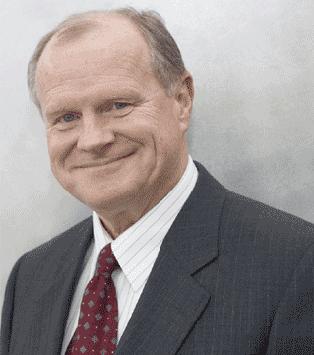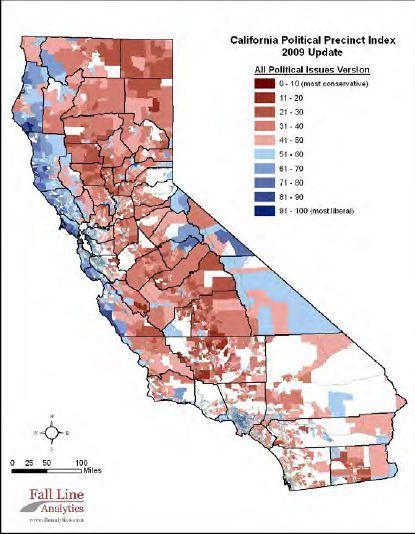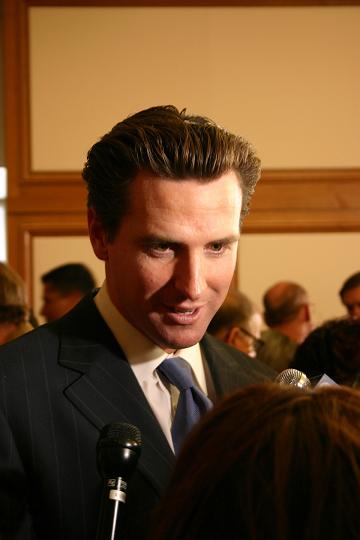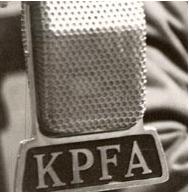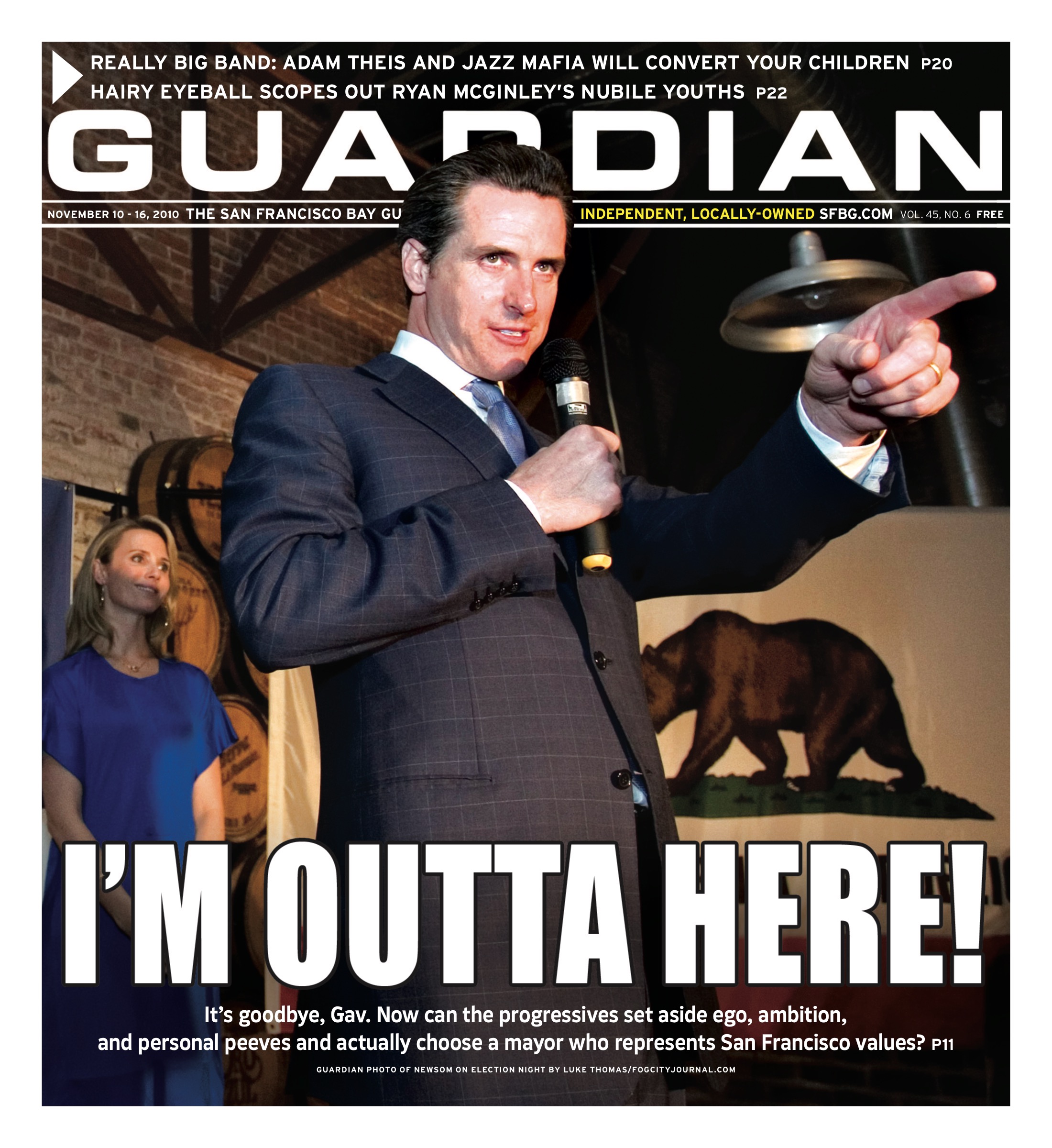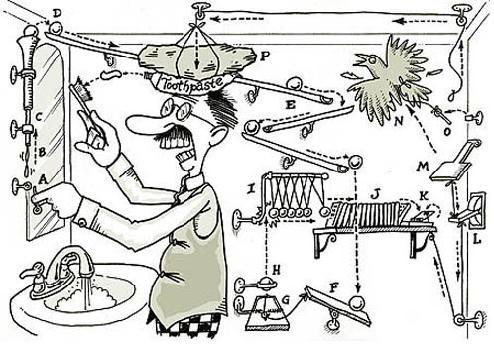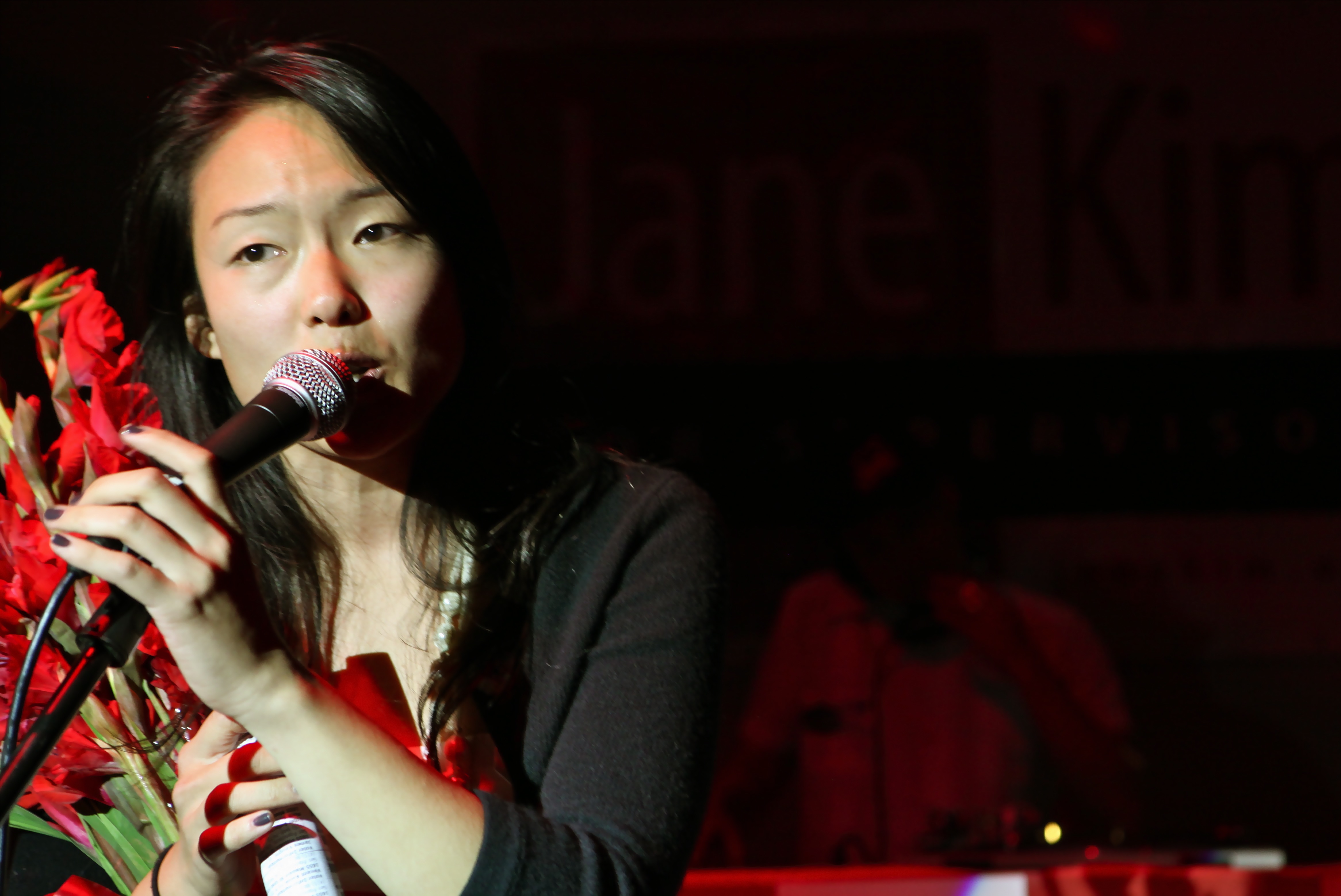Music listings are compiled by Cheryl Eddy. Since club life is unpredictable, it’s a good idea to call ahead to confirm bookings and hours. Prices are listed when provided to us. Submit items for the listings at listings@sfbg.com. For further information on how to submit items for the listings, see Picks.
WEDNESDAY 3
ROCK/BLUES/HIP-HOP
Hudson Bell, Winechuggers Café Du Nord. 9:30pm, $10.
Aloe Blacc with the Grand Scheme, Maya Jupiter, DJ Matthew Africa Rickshaw Stop. 8pm, $14.
Caldecott, Spooky Flowers, Guns for San Sebastian, Ansel Bottom of the Hill. 9pm, $8.
Paula Cole Yoshi’s San Francisco. 8pm, $26.
Dr. Dog Fillmore. 8pm, $25.
Lila Downs Herbst Theatre, 401 Van Ness, SF; www.sfjazz.org. 7:30pm, $25-65.
Elsinore, Dot Punto, Elissa P, Ash Reiter Elbo Room. 9pm, free.
Sean Hayes, Arann Harris and the Farm Band Independent. 8pm, $17.
Hypnotist Collectors, Sweet Bones, Starfish in the Clouds Milk Bar, 1840 Haight, SF; www.milksf.com. 9pm.
Candye Kane Biscuits and Blues. 8pm, $18.
No Joy, La Sera, Wax Idols Hemlock Tavern. 9pm, $7.
Eliza Rickman, Chris Trapper, Jason Adamo Hotel Utah. 8pm, $10.
Ryuichi Sakamoto Regency Ballroom. 8pm, $30-37.50.
DANCE CLUBS
Booty Call Q-Bar, 456 Castro, SF; www.bootycallwednesdays.com. 9pm. Juanita Moore hosts this dance party, featuring DJ Robot Hustle.
Hands Down! Bar on Church. 9pm, free. With DJs Claksaarb, Mykill, and guests spinning indie, electro, house, and bangers.
Jam Fresh Wednesdays Vessel, 85 Campton, SF; (415) 433-8585. 9:30pm, free. With DJs Slick D, Chris Clouse, Rich Era, Don Lynch, and more spinning top40, mashups, hip hop, and remixes.
Mary-Go-Round Lookout, 3600 16th St, SF; (415) 431-0306. 10pm, $5. A weekly drag show with hosts Cookie Dough, Pollo Del Mar, and Suppositori Spelling.
RedWine Social Dalva. 9pm-2am, free. DJ TophOne and guests spin outernational funk and get drunk.
Respect Wednesdays End Up. 10pm, $5. Rotating DJs Daddy Rolo, Young Fyah, Irie Dole, I-Vier, Sake One, Serg, and more spinning reggae, dancehall, roots, lovers rock, and mash ups.
Synchronize Il Pirata, 2007 16th St, SF; (415) 626-2626. 10pm, free. Psychedelic dance music with DJs Helios, Gatto Matto, Psy Lotus, Intergalactoid, and guests.
THURSDAY 4
ROCK/BLUES/HIP-HOP
Natacha Atlas Herbst Theatre, 401 Van Ness, SF; www.sfjazz.org. 7:30pm, $25-65.
Bayside, Senses Fail, Title Fight, Balance and Composure Regency Ballroom. 7:30pm, $18.
Avi Buffalo, AB and the Sea, Colleen Green Bottom of the Hill. 9pm, $14.
Roger Clyne and the Peacemakers, High Five Revival Café Du Nord. 8:30pm, $16.
Djavan Warfield. 8pm, $37.50-62.50.
Dr. Dog Fillmore. 8pm, $25.
Foxtail Somersault, Tomihira, Vir, Tracing Figures Rickshaw Stop. 8pm, $10.
Grand Nationals, Good Luck Jimmy, Uncle Frank and the Co-Defendants, Ash Gray Hotel Utah. 8pm, $8.
Mean Jeans, Shannon and the Clams, Margaret Doll Rod, Therapists, Skumby Thee Parkside. 9pm, $8.
Monarch, Trees, Al Qaeda Hemlock Tavern. 9pm, $7.
Two Door Cinema Club, Generationals, Funeral Party Slim’s. 8pm, $17.
Joe Louis Walker Biscuits and Blues. 8pm, $20.
Wild Thing, SF Blows Knockout. 9:30pm, $5.
DANCE CLUBS
Afrolicious Elbo Room. 9:30pm, $10. DJs Pleasuremaker and Señor Oz spin Afrobeat, tropicália, electro, samba, and funk.
Caribbean Connection Little Baobab, 3388 19th St, SF; (415) 643-3558. 10pm, $3. DJ Stevie B and guests spin reggae, soca, zouk, reggaetón, and more.
Club Jammies Edinburgh Castle. 10pm, free. DJs EBERrad and White Mice spinning reggae, punk, dub, and post punk.
Drop the Pressure Underground SF. 6-10pm, free. Electro, house, and datafunk highlight this weekly happy hour.
Electric Feel Lookout, 3600 16th St, SF; (415) 431-0306. 9pm, free. With DJs subOctave and Blondie K spinning indie music videos.
Good Foot Som., 2925 16th St, SF; (415) 558-8521. 10pm, free. With DJs spinning R&B, Hip hop, classics, and soul.
Holy Thursday Underground SF. 10pm, $5. Bay Area electronic hip hop producers showcase their cutting edge styles monthly.
Jivin’ Dirty Disco Butter, 354 11th St., SF; (415) 863-5964. 8pm, free. With DJs spinning disco, funk, and classics.
Koko Puffs Koko Cocktails, 1060 Geary, SF; (415) 885-4788. 10pm, free. Dubby roots reggae and Jamaican funk from rotating DJs.
Lacquer Beauty Bar. 10pm-2am, free. DJs Mario Muse and Miss Margo bring the electro.
Mestiza Bollywood Café, 3376 19th St, SF; (415) 970-0362. 10pm, free. Showcasing progressive Latin and global beats with DJ Juan Data.
Peaches Skylark, 10pm, free. With an all female DJ line up featuring Deeandroid, Lady Fingaz, That Girl, and Umami spinning hip hop.
FRIDAY 5
ROCK/BLUES/HIP-HOP
Bear in Heaven, Lower Dens, Sun Airway Independent. 9pm, $14.
Darondo Café Du Nord. 9pm, $15.
Rick Estrin and the Night Cats Biscuits and Blues. 8pm, $20.
Funk Revival Orchestra, Karyn Page Boom Boom Room. 9:30pm, $10.
Mark Growden a.Muse Gallery, 614 Alabama, SF; www.brownpapertickets.com. 7:30pm, $20-90.
Hillstomp, McDougall Thee Parkside. 9pm, $8.
I The Mighty, Of Shape and Sound, 5606, Hometown Bottom of the Hill. 9pm, $12.
Ray Manzarek and Roy Rogers Yoshi’s San Francisco. 8 and 10pm, $18-25.
Moanin’ Dove, Goldenhearts with Kaboom String Band, Linda Perry, Soft White Sixties Cellspace, 2050 Bryant, SF; www.tiny.cc/3uvwz. 8pm, $12.
Patsychords, Coyote Grace, Alessi’s Ark, Kelli Scarr Hotel Utah. 8pm, $8.
La Plebe, Lenny Lashley’s Gang of MDC, Classics of Love, Nino Zombi Slim’s. 8:30pm, $15.
Roche, Sex Worker, Bookworms Li Po Lounge. 8pm.
Walken, Lesbian, Grayceon Hemlock Tavern. 9:30pm, $8.
JAZZ/NEW MUSIC
Francis Wong Old First Church, 1751 Sacramento, SF; (415) 474-1608. 8pm.
FOLK/WORLD/COUNTRY
Afrofunk Experience Coda. 10pm, $10.
Heather Ambler and Jim Goodkind Mercury Café, 201 Octavia, SF; (415) 753-7855. 7:30pm, free.
Brass Tax Amnesia. 10pm, $5.
SambaDa Great American Music Hall. 9pm, $16.
DANCE CLUBS
Bearracuda DNA Lounge. 9pm, $10. House music dance party for bears and other wildlife, with live performances by Christeene, Smash-Up Derby, and more.
Braza! Som.10pm, $10. One-year anniversary celebration with DJ Spinna, plus residents Kento, Vanka, and Elan and live batucada with Fogo Na Ropa.
Club Dragon Club Eight, 1151 Folsom, SF; www.eightsf.com. 9pm, $8. A gay Asian paradise. Featuring two dance floors playing dance and hip hop, smoking patio, and 2 for 1 drinks before 10pm.
Deeper 222 Hyde, 222 Hyde, SF; (415) 345-8222. 9pm, $10. With rotating DJs spinning dubstep and techno.
Dirty Rotten Dance Party Madrone Art Bar. 9pm, $5. With DJs Morale, Kap10 Harris, and Shane King spinning electro, bootybass, crunk, swampy breaks, hyphy, rap, and party classics. Exhale, Fridays Project One Gallery, 251 Rhode Island, SF; (415) 465-2129. 5pm, $5. Happy hour with art, fine food, and music with Vin Sol, King Most, DJ Centipede, and Shane King.
Family Vibes Elbo Room. 10pm, $8-10. Dub, bhangra, and Latin with Non Stop Bhangra, Locura, and Surya Dub,
Fat Stack Fridays Koko Cocktails, 1060 Geary, SF; (415) 885-4788. 10pm, free. With rotating DJs B-Cause, Vinnie Esparza, Mr. Robinson, Toph One, and Slopoke.
Fubar Fridays Butter, 354 11th St., SF; (415) 863-5964. 6pm, $5. With DJs spinning retro mashup remixes.
Good Life Fridays Apartment 24, 440 Broadway, SF; (415) 989-3434. 10pm, $10. With DJ Brian spinning hip hop, mashups, and top 40.
Hot Chocolate Milk. 9pm, $5. With DJs Big Fat Frog, Chardmo, DuseRock, and more spinning old and new school funk.
Oldies Night Knockout. 9pm, $2-4. Doo-wop, one-hit wonders, and more with DJs Primo, Daniel, and Lost Cat.
Rick Preston, Michelle Sanz, Christian Intrigue Triple Crown. 9pm. Spinning house to raise money for the American Red Cross to help victims of the San Bruno disaster.
Popscene vs. Loaded Rickshaw Stop. 10pm, $10. With Young the Giant, Geographer, DJ Aaron Axelson, and DJ Omar.
Rockabilly Fridays Jay N Bee Club, 2736 20th St, SF; (415) 824-4190. 9pm, free. With DJs Rockin’ Raul, Oakie Oran, Sergio Iglesias, and Tanoa “Samoa Boy” spinning 50s and 60s Doo Wop, Rockabilly, Bop, Jive, and more.
Some Thing The Stud. 10pm, $7. VivvyAnne Forevermore, Glamamore, and DJ Down-E give you fierce drag shows and afterhours dancing.
Strangelove Cat Club, 1190 Folsom, SF; (415) 703-8965. 9:30pm, $6. With DJs Tomas Diablo, Joe Radio, Fact 50, and Prince Charming spinning goth and industrial.
SATURDAY 6
ROCK/BLUES/HIP-HOP
Big Light, Big Universe, Scraping for Change, Distorted Harmony, Lost Cosmonauts, Body or Brain Great American Music Hall. 7pm, $15.
Browntown West, Okie Rosette, Starr King Pops Bottom of the Hill. 2:15-5:15pm, $15. Starr King Elementary School benefit.
Colour Revolt, Cast of Thousands, Polaris at Noon Bottom of the Hill. 9:30pm, $10.
David J with Jill Tracy, Oddbird, Five Beats One Café Du Nord. 9:30pm, $15.
Evolution: The Ultimate Tribute to Journey, La Ventana Slim’s. 9pm, $16.
Ruth Gerson Hotel Utah. 8pm, $10.
Mark Growden a.Muse Gallery, 614 Alabama, SF; www.brownpapertickets.com. 7:30pm, $20-90.
Laurie Morvan Band Biscuits and Blues. 8pm, $20.
Ledisi Palace of Fine Arts, 3301 Lyon, SF; www.sfjazz.org. $30-75.
Left Alone, Rocketz, Howlers, Bum City Saints Thee Parkside. 9pm, $8-10.
Magic Leaves, Moccretro, Spurm Hemlock Tavern. 9:30pm, $6.
Mondo Drag, Your Cannons, Rachel Fannan Fivepoints Arthouse, 72 Tehama, SF; (415) 989-1166. 8pm, $5.
Pepper, Fishbone, Pour Habit Warfield. 8pm, $28.
Small Black, Class Actress, Young Prisms Independent. 9pm, $14.
Mavis Staples and Billy Bragg Fillmore. 8pm, $36.50.
Chelsea TK and the Tzigane Society, Love Dimension, Moon Balloons Hotel Utah. 9:30pm, $6.
Trans Am, Nice Nice, Jonas Reinhardt, Beat Broker Rickshaw Stop. 8:30pm, $15.
Jody Watley Yoshi’s San Francisco. 8 and 10pm, $28-36.
JAZZ/NEW MUSIC
Roy Haynes and the Fountain of Youth Band Herbst Theatre, 401 Van Ness, SF; www.sfjazz.org. 8pm, $25-65.
“Switchboard Music Festival Preview” Porto Franco Records Art Parlor, 953 Valencia, SF; (650) 678-8020. 8pm, $15. With Telepathy and Happy Hour Jazz Quintet.
Zachary James Watkins, Kenneth Atchley Li Po Lounge. 9pm, $5. With films by John Reily with soundtracks by Lars Hidde and Charles Kremenak.
FOLK/WORLD/COUNTRY
Africa Rising feat. DJ Jerimiah Coda. 10pm, $10.
Magic System, Les Twins Mezzanine. 8pm, $30.
Tango No. 9 Noe Valley Ministry, 1021 Sanchez, SF; www.noevalleymusicseries.com. 8:15pm, $17.
DANCE CLUBS
Bar on Church 9pm. Rotating DJs Foxxee, Joseph Lee, Zhaldee, Mark Andrus, and Nuxx.
Debaser Knockout. 9pm, $5. Nineties alternative with DJ Jamie Jams and Emdee.
Everlasting Bass 330 Ritch. 10pm, $5-10. Bay Area Sistah Sound presents this party, with DJs Zita and Pam the Funkstress spinning hip-hop, soul, funk, reggae, dancehall, and club classics. Fire Corner Koko Cocktails, 1060 Geary, SF; (415) 885-4788. 9:30pm, free. Rare and outrageous ska, rocksteady, and reggae vinyl with Revival Sound System and guests.
Foundation Som., 2925 16th St., SF; (415) 558-8521. 10pm.
Gemini Disco Underground SF. 10pm, $5. Disco with DJ Derrick Love and Nicky B. spinning deep disco.
HYP Club Eight, 1151 Folsom, SF; www.eightsf.com. 10pm, free. Gay and lesbian hip hop party, featuring DJs spinning the newest in the top 40s hip hop and hyphy.
Kontrol Endup. 10pm, $20. With resident DJs Alland Byallo, Craig Kuna, Sammy D, and Nikola Baytala spinning minimal techno and avant house.
Leisure Paradise Lounge. 10pm, $7. DJs Omar, Aaron, and Jet Set James spinning classic britpop, mod, 60s soul, and 90s indie.
New Wave City: Duran Duran Tribute DNA Lounge. 9pm, $7-12. With DJs Skip and Shindog.
Rock City Butter, 354 11th St., SF; (415) 863-5964. 6pm, $5 after 10pm. With DJs spinning party rock.
Saturday Night Soul Party Elbo Room. 10pm, $10. Sixties soul with DJs Lucky, Phengren Oswald, and Paul Paul.
Souf Club Six. 9pm, $7. With DJs Jeanine Da Feen, Motive, and Bozak spinning southern crunk, bounce, hip hop, and reggaeton.
Soundscape Vortex Room, 1082 Howard, SF; www.myspace.com/thevortexroom. With DJs C3PLOS, Brighton Russ, and Nick Waterhouse spinning Soul jazz, boogaloo, hammond grooves, and more.
Spirit Fingers Sessions 330 Ritch. 9pm, free. With DJ Morse Code and live guest performances.
SUNDAY 7
ROCK/BLUES/HIP-HOP
Terry Adams Yoshi’s San Francisco. 8pm, $25.
Azalea Snail, Werewolves, Art of Shooting, Technicolor Yawn Hemlock Tavern. 5pm, $7.
Circa Survive, Dredg, Codeseven, Animals As Leaders Regency Ballroom. 7pm, $20.
A Decent Animal, Manatee, Graham Patzner Hotel Utah. 8pm, $7.
George Glass, Grimoon, Silent Pictures Knockout. 9pm, $7.
Johnny Flynn, Cheyenne Marie Mize, Goh Nakamura Rickshaw Stop. 8pm, $12.
Kegels, Penny Dreadfuls, Dead Panic Bottom of the Hill. 9pm, $10.
Rubbersidedown, Burn River Burn, Dead Neck Café Du Nord. 8pm, $10.
JAZZ/NEW MUSIC
Kally Price with Old Blues and Jazz Band, Emperor Norton’s Jazz Band Amnesia. 9pm, $7-10.
FOLK/WORLD/COUNTRY
José James and Jef Neve Florence Gould Theatre, Legion of Honor, 100 Legion of Honor Dr, SF; www.sjfazz.org. 2pm, $30.
Yellowjackets: The Jeff Lorber Fusion feat. Randy Brecker and Eric Marienthal Palace of Fine Arts, 3301 Lyon, SF; www.sfjazz.org. 7pm, $25-65.
DANCE CLUBS
Afterglow Nickies, 466 Haight, SF; (415) 255-0300. An evening of mellow electronics with resident DJs Matt Wilder, Mike Perry, Greg Bird, and guests.
Call In Sick Skylark. 9pm, free. DJs Animal and I Will spin danceable hip-hop.
Dance Social Knockout. 5pm, free. Northern soul, Motown, rocksteady, and more with DJs Dr. Scott and Revival Sound System.
DiscoFunk Mashups Cat Club. 10pm, free. House and 70’s music.
DJ Anthony Atlas Hemlock Tavern. 9pm, free.
Dub Mission Elbo Room. 9pm, $6. Dub, dubstep, roots, and dancehall with DJ Sep, Vinnie Esparza, and guest Antiserum.
Gloss Sundays Trigger, 2344 Market, SF; (415) 551-CLUB. 7pm. With DJ Hawthorne spinning house, funk, soul, retro, and disco.
Honey Soundsystem Paradise Lounge. 8pm-2am. “Dance floor for dancers – sound system for lovers.” Got that?
Kick It Bar on Church. 9pm. Hip-hop with DJ Zax.
Pachanga Coda. 5pm, $10. Salsa with DJs Fab Fred and Antonio with Jesus Diaz y su QBA.
Swing Out Sundays Rock-It Room. 7pm, free (dance lessons $15). DJ BeBop Burnie spins 20s through 50s swing, jive, and more.
MONDAY 8
ROCK/BLUES/HIP-HOP
Average White Band Yoshi’s San Francisco. 8pm, $25.
Marc Cohn, Sahara Smith Palace of Fine Arts, 3301 Lyon, SF; www.ticketmaster.com. 8pm, $38.50.
Combichrist, Aesthetic Perfection, (iVardensphere), God Module, DJ Decay Slim’s. 7:30pm, $24.
Heavy Independent. 8pm, $14.
Lucabrazzi, Vatos Locos, Spawn Atomic, Bckup Razor Elbo Room. 9pm, $5.
Supervillains, Ballyhoo!, Agent Deadlies Bottom of the Hill. 8:30pm, $10.
KT Tunstall, Hurricane Bells Warfield. 8pm, $30-40.
DANCE CLUBS
Black Gold Koko Cocktails, 1060 Geary, SF; (415) 885-4788. 10pm-2am, free. Senator Soul spins Detroit soul, Motown, New Orleans R&B, and more — all on 45!
Death Guild DNA Lounge. 9:30pm, $3-5. Gothic, industrial, and synthpop with DJs Decay, Joe Radio, and Melting Girl.
Krazy Mondays Beauty Bar. 10pm, free. With DJs Ant-1, $ir-Tipp, Ruby Red I, Lo, and Gelo spinning hip hop.
M.O.M. Madrone Art Bar. 6pm, free. With DJ Gordo Cabeza and guests playing all Motown every Monday.
Manic Mondays Bar on Church. 9pm. Drink 80-cent cosmos with Djs Mark Andrus and Dangerous Dan.
Musik for Your Teeth Revolution Café, 3248 22nd St., SF; (415) 642-0474. 5pm, free. Soul cookin’ happy hour tunes with DJ Antonino Musco.
Network Mondays Azul Lounge, One Tillman Pl, SF; www.inhousetalent.com. 9pm, $5. Hip-hop, R&B, and spoken word open mic, plus featured performers.
Skylarking Skylark. 10pm, free. With resident DJs I & I Vibration, Beatnok, and Mr. Lucky and weekly guest DJs.
TUESDAY 9
ROCK/BLUES/HIP-HOP
Average White Band Yoshi’s San Francisco. 8 and 10pm, $16-25.
Brookhaven Amnesia. 9pm.
Nectarine Pie, TRMRS, Apache Hemlock Tavern. 9pm, $6.
OK Sweetheart, Parlor Hawk, Desert Noises, Sean Barnett Hotel Utah. 8pm, $10.
Pains of Being Pure at Heart, Weekend, Grave Babies Independent. 8pm, $15.
Kurt Vile and the Violators, Soft Pack, Purling Hiss Rickshaw Stop. 8pm, $12.
DANCE CLUBS
Eclectic Company Skylark, 9pm, free. DJs Tones and Jaybee spin old school hip hop, bass, dub, glitch, and electro.
Share the Love Trigger, 2344 Market, SF; (415) 551-CLUB. 5pm, free. With DJ Pam Hubbuck spinning house.
Womanizer Bar on Church. 9pm. With DJ Nuxx.

